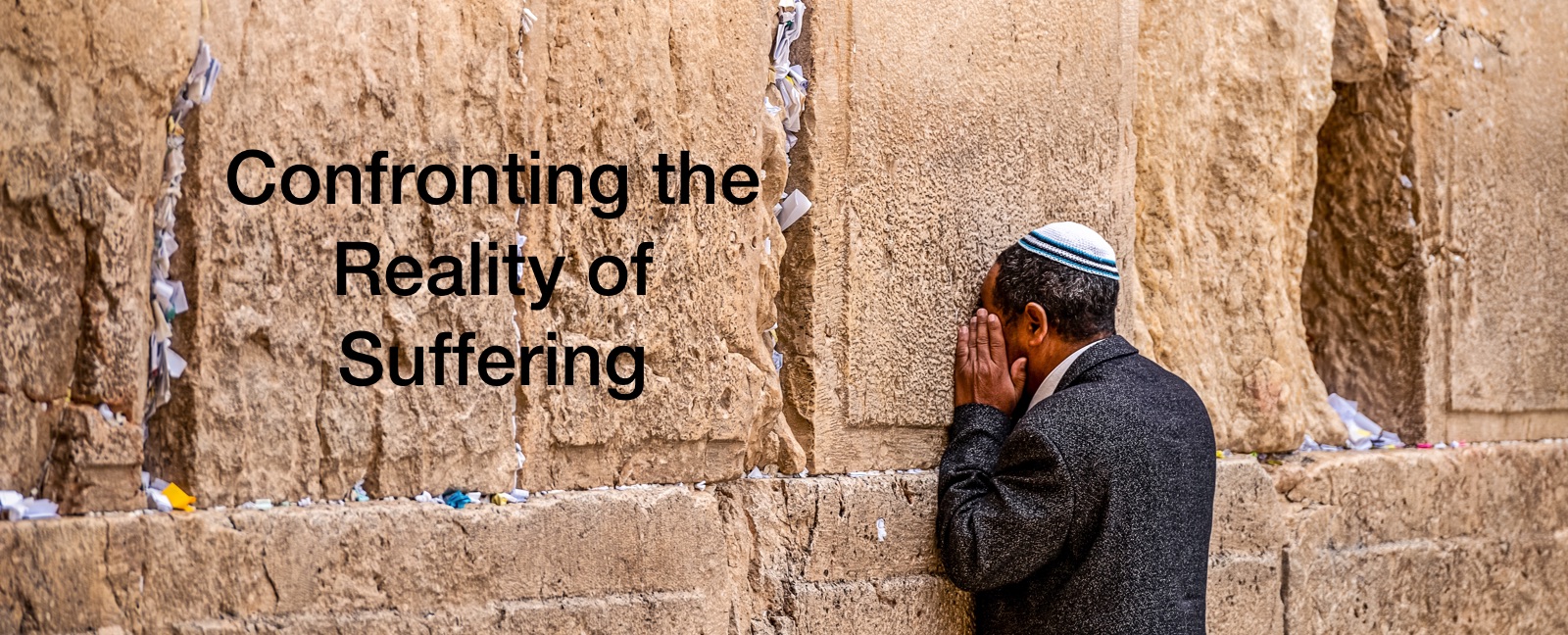Confronting the Reality of Suffering

“Where were you when I laid the foundation of the earth? Tell me, if you have understanding.” — Job 38:4
Of the perennial puzzles that animate religious life, the question of suffering continues to occupy center stage.
In the theological sense we ask how a benevolent creator can allow room for evil. In the existential sense we fret about our place in a universe of pain and difficulty. In the philosophical sense, we wonder how the infinite can manifest itself in the finite. And in the ethical sense we ache over a world saturated with cries of injustice. Whether by attempting to reconcile a “good god” with a “bad world,” or by protesting the cacophony that emerges from human experience, the question of suffering persists among religious believers despite its apparent unanswerability.
But instead of attempting an answer to this question — what I see as an exercise in futility — I would like to offer some personal reflections from the perspective of Judaism. While drawn from the deep wells of the Jewish spiritual tradition, these thoughts have become part of my own lived experience over time. As both a rabbi and psychotherapist who ministers to people struggling with addiction, I have seen my fair share of physical and spiritual anguish.
Before jumping right into this space, let me qualify my remarks. First, when speaking of suffering it is not simply profound trauma that we have in mind. While the losses, sicknesses, and violence of life represent an intense expression of suffering, a smaller more silent strain runs beneath all human experience. The constant anxiety of disappointment. The nagging sense that this world isn’t what it should be. According to Rabbinic thought, as expressed in the vast sea of the Talmud, all it takes to be considered a sufferer is reaching into your pocket for a quarter and pulling out a nickel.
Translated in terms of our (post)modern sensibilities, whenever we hope for something that turns out less than what we expected we are experiencing a form of suffering. To borrow psychiatrist Mark Epstein’s phrase, it is not only in the capital T traumas where one confronts the reality of suffering, but rather it is within the lower case t “traumas of everyday life” where suffering is most often felt.
This is important because our view of suffering can determine our response to it. There are two general ways for an individual to confront the harsh reality of human adversity. One way — typified by the theologian who withdraws from the practicality of life — is to theorize, conceptualize, and ultimately understand the role of suffering within reality. To under-stand something one must be capable of standing-under it, thereby assuming a position of control. This attitude attempts to reduce suffering to something graspable by human logic. Here we see theology attempting to make room for the “flaw” of suffering within the otherwise neat structure of life, as if suffering were just a deviation from the norm of divine governance. After all, if the benevolent Creator created a creation which is designed to reflect the benevolence of its Creator, how can suffering be anything but a momentary deviation from that reality?
This stance is difficult enough in the face of historical evidence that points to suffering as the rule instead of the exception to the rule. But beyond that, the presence of suffering would then be attributed to either deviant human behavior or the limitations of the human mind. It’s as if to say: the suffering you feel so clearly with your own body is nothing other than your inability to understand your own experience. Ascribing all suffering as blame is a classic case of adding insult to injury. Not only must the individual live with the suffering, but now they are made to feel responsible for it as well.
A second way to approach human adversity — deeply rooted in Hasidic thought — is to assume suffering as a given reality, to treat it as an ingredient already baked in the bread of life. Instead of questioning the existence of suffering from a position of theological detachment, we are encouraged to confront suffering head on. Acknowledging the reality of suffering as a natural consequence of living in a world that is separate from divine grace, we are tasked with cultivating an attitude of acceptance and faith. No longer trying to find a rational answer to the question of suffering, we can now learn ways to cope with and living through the suffering itself. When one accepts the limited nature of the mind, the incessant drive towards rational understanding surrenders to an acceptance of what is real and discovers the courage to live in its presence. We need not retreat from the midst of life towards some transcendental ideal, but rather leap headfirst into the immensity of our mortal experience.
It is specifically in the heart of darkness, the lived reality of everyday traumas, that we may enlarge our faith, making room not only for light but for darkness as well. By confronting the reality of suffering in all its existential realness, we learn that faith is born not in spite of suffering, but through it.
Joey Rosenfeld is a rabbi and practicing psychotherapist currently working in the addiction field in St. Louis, Missouri. He focuses on the interface between philosophy, spirituality, and psychology.
Editor’s note: This essay is part of a series that answers the question: “How does your faith help you deal with suffering and adversity?” Perspectives from a variety of religions allow us to better endure the spiritual challenges we all face as human beings.



